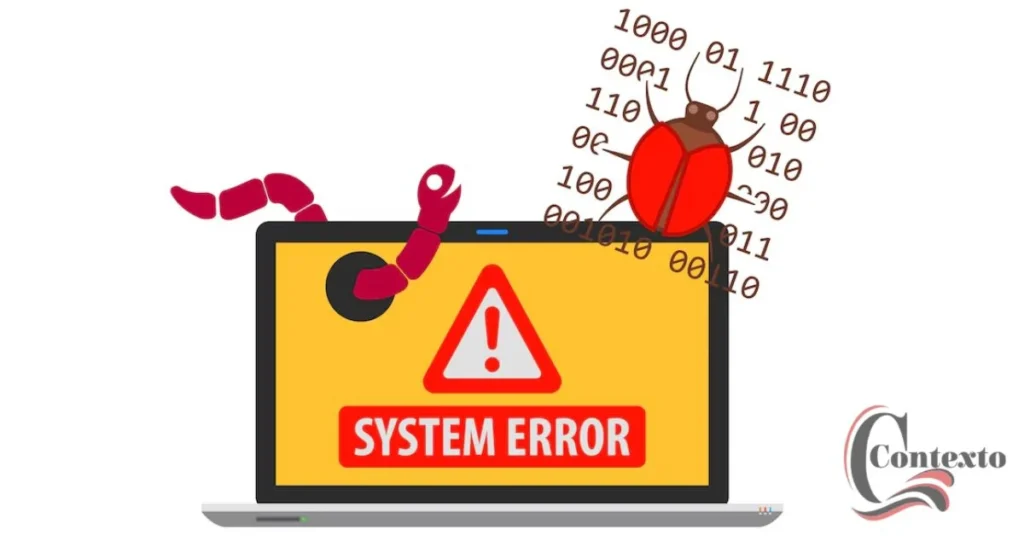Introduction to IP Standards Test
In the ever-evolving world of technology, understanding how IP addresses function is crucial. They serve as unique identifiers for devices on networks, enabling smooth communication across the internet. However, not all IP addresses adhere to established standards and protocols. Take 185.63.253.2001, for example—a number that raises eyebrows among tech enthusiasts and network administrators alike.
What makes this particular address fall short? Why should we care about compliance with IP standards? As we explore these questions, you’ll gain insight into what it means for an IP address to meet industry expectations and why deviations can create significant problems in connectivity and security. Let’s dive deeper into the intriguing world of IP standards and uncover the shortcomings of 185.63.253.2001 together!
Explanation of 185.63.253.2001
185.63.253.2001 is an IP address that falls within the realm of internet protocol communication.
IP addresses serve as unique identifiers for devices connected to a network, enabling them to send and receive data seamlessly.
This particular address appears to be a part of the IPv4 range, which consists of four sets of numbers separated by periods. Each set ranges from 0 to 255.
However, it’s important to note that this specific IP does not conform to standard formatting or allocation rules typically observed in legitimate networks.
Understanding its structure helps clarify why certain compliance measures are essential for proper internet functionality. The significance lies in the potential issues arising from non-compliance with established standards in networking environments.
The Importance of Following IP Standards
Following IP standards is crucial for maintaining a stable and efficient internet. These guidelines ensure that devices can communicate seamlessly across networks.
When organizations adhere to established IP protocols, they enhance compatibility. This means different systems can work together without conflict or confusion.
Moreover, compliant IPs reduce security vulnerabilities. By following best practices, businesses can protect themselves from potential threats lurking in the digital landscape.
Additionally, standardized IP addressing simplifies network management. It allows administrators to identify issues quickly and resolve them efficiently.
Not only does compliance foster better connectivity, but it also builds trust within the online community. Users appreciate knowing their data is handled according to recognized standards.
In an ever-evolving technological environment, staying updated with these guidelines is essential for success in digital operations and communications.
How 185.63.253.2001 Fails the Test
185.63.253.2001 stands out as a unique case in the realm of IP addresses, but not for reasons to celebrate. This address flouts standard formatting conventions.
Typically, an IPv4 address comprises four octets separated by periods, each ranging from 0 to 255. However, 185.63.253.2001 exceeds this limit with its five octets.
This violation can create confusion in network configurations and lead to significant issues in routing protocols.
Moreover, tools that rely on IP standards may fail when encountering such irregularities, resulting in communication breakdowns across networks.
When systems don’t adhere to these crucial guidelines, it jeopardizes security and stability within digital environments—an unacceptable risk for any organization aiming for operational integrity.
Consequences of Not Meeting IP Standards
Failing to meet IP standards can lead to a multitude of issues. For businesses, this often translates into reputational damage. Customers expect reliability and security; falling short can erode trust.
Inadequate compliance may also result in legal repercussions. Regulatory bodies impose fines on organizations that neglect proper protocols. This not only drains financial resources but also diverts attention away from core operations.
Operational inefficiencies emerge as well. When systems don’t align with established standards, it creates confusion among team members. Resources get wasted trying to fix problems that could have been easily avoided.
Data breaches become more likely too. Non-compliance leaves networks vulnerable, exposing sensitive information to cyber threats. The fallout from such incidents can be catastrophic for any organization.
Investing time and effort into meeting IP standards is crucial for sustainable growth and stability within the tech landscape.
Steps to Ensure Compliance with IP Standards
To ensure compliance with IP standards, start by regularly auditing your network. This helps identify any non-compliant addresses like 185.63.253.2001.
Next, implement strict policies for IP address allocation and usage. Clear guidelines can prevent unauthorized devices from connecting to the network.
Consider utilizing automated tools for monitoring and management. These systems can track compliance in real time and alert you of deviations.
Training staff on the importance of IP standards is crucial as well. Everyone should understand their role in maintaining network integrity.
Stay updated with industry regulations and best practices. Compliance isn’t a one-time effort; it requires ongoing attention to detail and adaptation.
Conclusion
Understanding the significance of IP standards is crucial for both network functionality and security. The case of 185.63.253.2001 illustrates how non-compliance can lead to various issues, including connectivity problems and potential vulnerabilities.
By recognizing the shortcomings of this specific IP address, organizations can take proactive measures to ensure they adhere to established protocols. This not only enhances their operational efficiency but also safeguards their networks from unwanted threats.
Emphasizing adherence to IP standards fosters a more reliable online environment, ultimately benefiting everyone involved in digital communications and transactions. Prioritizing compliance will pave the way for smoother operations and improved security across all platforms.
FAQs
What is “185.63.253.2001”?
“185.63.253.2001” is an IP address that appears to be within the IPv4 range but fails to meet the proper format standards, as it exceeds the maximum allowed value in the last octet (2001 instead of a number between 0-255).
Why is 185.63.253.2001 not a valid IP address?
It violates the IPv4 format, which requires four octets (each ranging from 0 to 255). The last segment (2001) exceeds this limit, making it invalid.
What happens if IP addresses like 185.63.253.2001 are used in networks?
Using non-compliant IP addresses can lead to network issues, such as misconfigurations, routing problems, or even security vulnerabilities, as systems may fail to recognize the address.
How can I ensure my IP addresses are compliant with standards?
Regular audits, clear allocation policies, and automated tools can help maintain compliance, preventing issues like those seen with 185.63.253.2001.
What are the risks of not following IP standards?
Failing to meet IP standards can result in data breaches, operational inefficiencies, legal repercussions, and damage to reputation due to compromised security and poor network performance.






